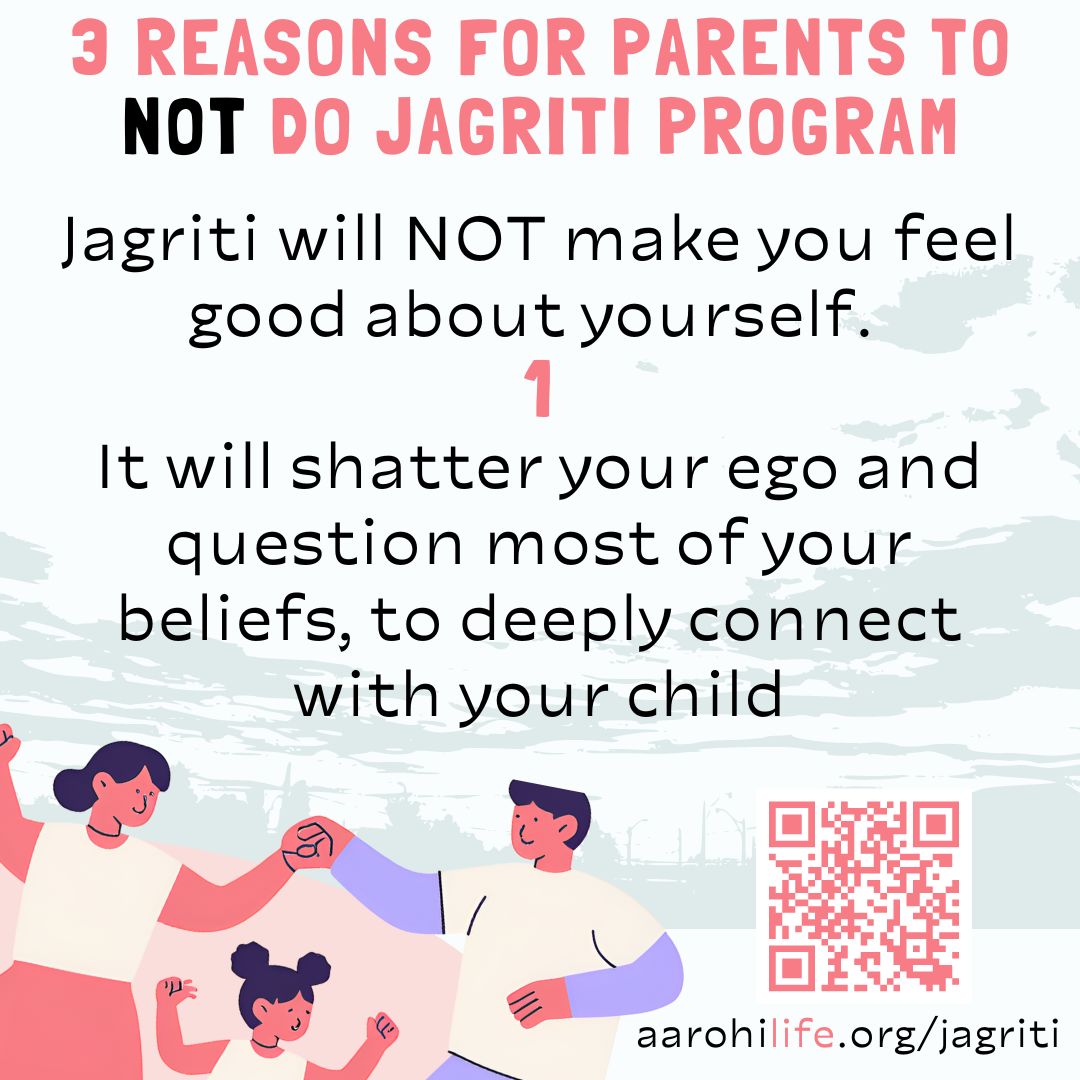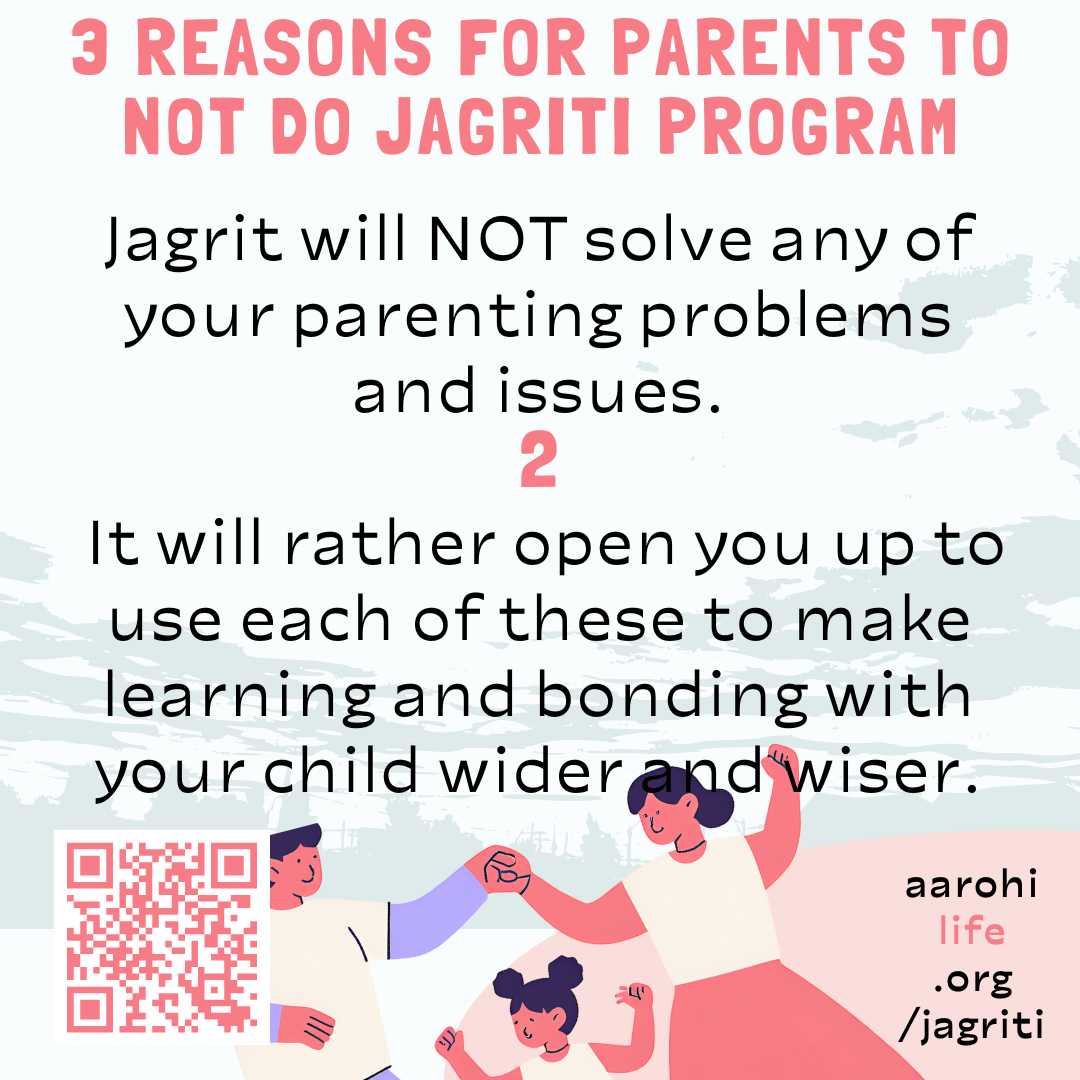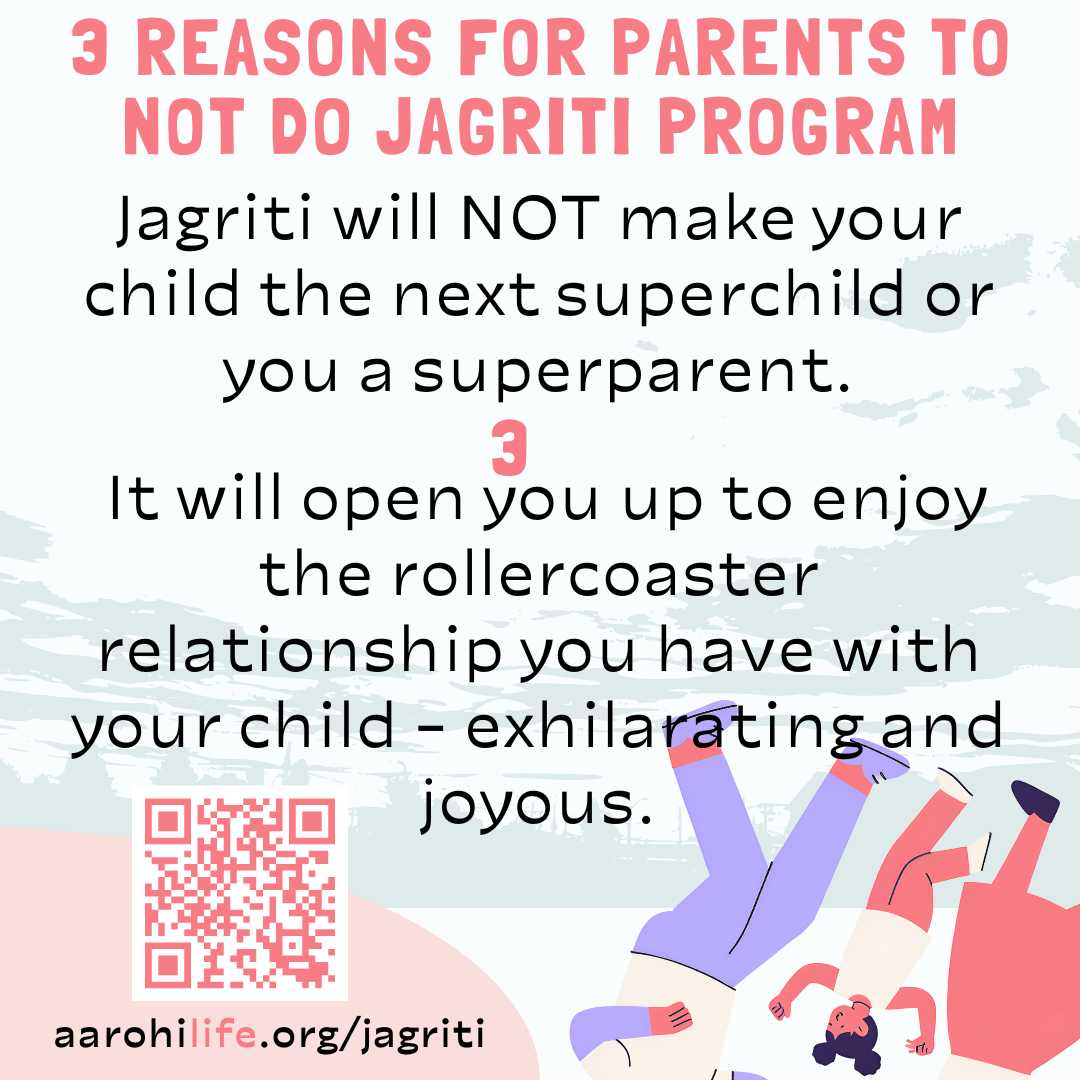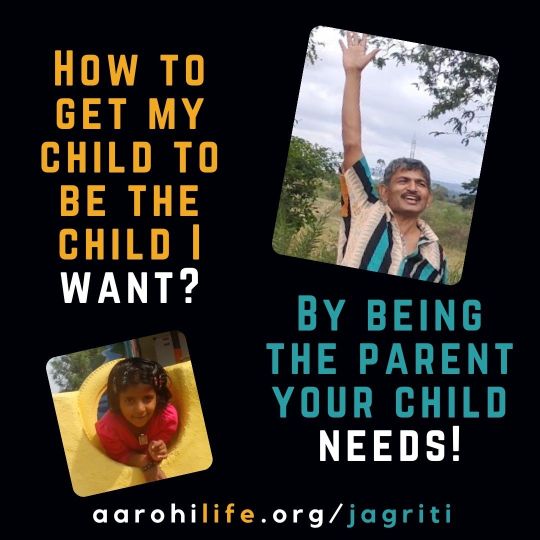At best below are just quick / brief thoughts on each situation. For each we have so much to share, so many perspectives to explore and so much understanding to dig. Which is why we believe each parent, teacher or aspiring educator would benefit immensely from the Jagriti program.
(Click on each question to see our quick response)
Many of us believe lying is bad and hence jump on the child when he or she does. We’re also scared that this would become a ‘habit’. But we need to realise that a child learns to lie because of some fear, some anxiety – that we only have planted in the child’s mind. If we instead spend time in understanding the child real need and together work on that – there will be no need to lie. We cannot stop anybody (including ourselves) from lying – we can only create an environment where there is no need to do so.
In our experience each child is capable of handling all situations that child faces in life. And even if the child is not capable isn’t this the opportunity to develop that capability. And the child will be able to develop this only when we first believe in him or her and let the child think and try out. In any case at this age of the child we have the advantage of being with the child all along just in case something goes wrong.
To us all children are born and hence already confident and assertive. Just that, the way they use their confidence and assertiveness may not match with our definition. In case don’t we all use it differently – check between you and your spouse or friends. So the idea is to offer an environment in our homes that allows all – adults and children to share thoughts and views and then all can learn from each other. That s what families are for – isn’t it!
Today’s touch could be tomorrow’s abuse! What is good touch and what is bad touch is based on how the child feels about it. In any case we can’t always be with the child – so the best person to take care of the child – physically, emotionally, sexually – is the child himself or herself. Can we hence work on empowering the child to think on ways to take care of self. We can prepare the child for all kinds of eventualities.
This situation highlights how we typically operate from the belief that the child is not capable. Not capable to understand the importance of something, not able to learn or do something by herself and so on. While we intuitively know that all of us are different, have different interests and strengths – we fail to recognise this just because of the external measures of success we have put on ourselves. But when we see this from internal motivation window – then we are with the child, not with the task
Just as much we jump at child’s weaknesses, we are all too crazy of child’s strengths. Either ways we overreact – simply because we think that child needs our reaction. But wait, in most cases we have seen that child needs somebody who is just WITH the child – not somebody who constantly does something FOR the child. This way the child grows more organically, more naturally.
Do you normally tend to see child’s emotions and social behaviour through your lens of right and wrong? But two things are perhaps far more important. One – the child’s need to be understood (Isn’t this a universal need). Two, each such situation is an important step in child learning about emotions, about relationships and about self – something which no educational curriculum covers, and hence our sensitivity and understanding is so very important.
Is it required to preach values? Wait, can we really teach values? In many cases we only profess one thing and then do something else. Also realise that child’s values anyway change as he or she grows up – since a child continuously learns from all kinds of experiences and exposures. So instead of controlling the learning, can I work on the ability to learn, rather discern.
It funny, that when we ask this question to most parents – the most common answer is, “We haven’t thought about it”. Well we go about doing parenting for about say 20 years with just a vague sense of why and what and how. Isn’t today a good time to put some clarity into this job. Then see how many of our actions and interactions align with that vision. And also is that the vision the child needs and wants and which will give him or her the life he or she deserves.



